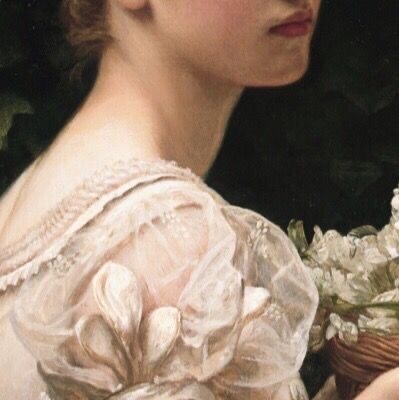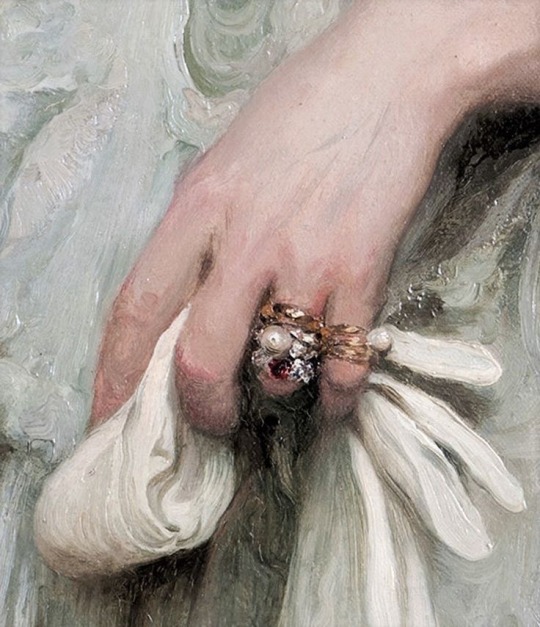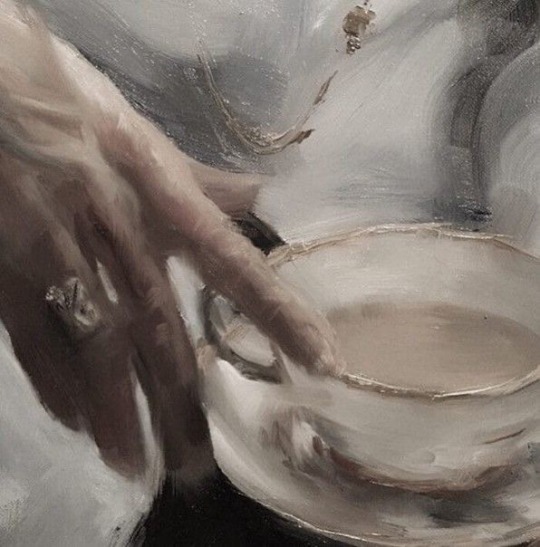Text
Richard Papen: The Master of Illusion
Why did Richard become an accomplice, how could he so easily be swayed to ''allow'' murder? The answer is simple: He longed for the picturesque, at any cost.
Richard grew up isolated, and seen as an inconvenience; Nineteen-years-of-life and not a single mention of an old friend (Apart from an ex-girlfriend he was desperate to rid of)—It's why he idolises Hampden and the Greek Scholars to a fictitious degree, they represented everything he did not have; Fundamental familial experiences with love, being cared for, and feeling wanted.
They were beautiful, but beauty cannot replace what he hadn't had.

The Motive: To sum it all up in a pretty bow for you; Richard left his morals at the door once Henry rescued him—All of his fears had not only been amplified in chapter 3, but realised; His Parents distain, his Teachers neglect, his lack of companionship, his very existence unperceived (tainted): All of which almost led him to his own grave, with nowhere else to turn.
The side-character to his own story, the man everyone felt passive-distain for (Not even hatred, that would be too impassioned.) But for the first time, someone caught him when he fell. For the first time he was shown compassion, Henry stayed by his bedside when he was to ill to do much else other than lay in pain, and Henry made it clear he would recover within his own home and very bed—An action Richard could never forget—Of course he'd put Henry atop a pedestal, and become so agreeable for his Messiah; He'd never experienced such guidance nor support in his entire life.
After a life of desperation for an escape—After everything which previously had been filled with dread, suddenly leaked beauty: Was it really a question of if once glanced, whether he'd franticly flail to grasp it again? Of if he'd insert himself into these peoples lives, and make any sacrifice possible to return their tranquil silence once it had been so foolishly broken by Bunny?

Now the real reason I am creating this post: That's right I fooled you into read my theory HAHA!—Richard Papen was the one to push Bunny, not Henry. I figured I'd get his motive out of the way before we'd delve into pure insanity.
The most notable part of the actual murder is it's never written who pushes Bunny, but it simply couldn't have been Henry; He was thirty-feet-away, his shear distance keeps coming up too—But with Richard, Bunny was practically breathing down his neck, he was close enough to read the label on the bear bottle.
He describes being overwhelmed by Bunny's sudden appearance, but really it was anticipation: Because Richard realized he'd have to be the one to push him.
If Henry had tried to push Bunny it couldn't of logistically worked, there is no element of surprise as Henry is too faraway and within Bunny's direct sight, he has his full attention. Henry may be large but so is Bunny, it's even directly mentioned here how he's 6 foot 3.
You could argue he was just to stupid to fight back—However, Richard may never describe the push, but he does go into deep details on the shear surprise and shock on Bunny's face; He well and truly hadn't seen his emendate death coming. Dumbassery doesn't entirely dull out your reflexes nor does it suddenly make you the size of Francis scrawny ass.
Richards within shoulder length, and Henry, who limps and is to far to seize the element of surprise: The push—The fall, Richard watches each and every moment of Bunny's death at an intimate proximity.
It just couldn't have been Henry, I'm sorry.
It all loops back to why Richard would've felt the need to commit this murder, because yes Henry manipulates Richard well and truly but it completely backfires due to Richards traumatic history: Ultimately he killed Bun out of his own volition, and selfish desire for the picturesque lifestyle he'd only so recently acquired.
And finally, Donna Tartts quote of The Greeks and The Irrational
Dionysus [is] The Master of Illusions, who could make a vine grow out of a ship's plank, and in general enable his votaries to see the world as the world's not.
We are reminded of who our narrator is, and then must listen to Richard try desperately to twist his language in order to fool us into believing Henry had well and truly committed the murder.
But no man who was a mere witness describes a murder in the way Richard chose to, it is morbid and soaked in guilt. He goes on a tangent about murderers always avoiding telling the meat of their crimes, but really he was doing so to avoid telling us the true events of that evening; He goings in circles around the incident constantly, never landing on the mark.
God this post got long, if you made it through the entire thing oh my gosshhh hiiiiiiiiiiiiiii how are youuuu :)
#oh my god this is fascinating#ive never thought of this#then again im in desperate need of a reread#this is such a thoughtful interpretation though omfg im losing my mind
424 notes
·
View notes
Text
Charles is Innocent: Fucking Damnit!
Out of any of the characters, Charles is the least appreciated.
At first glance, he doesn't have many outstanding moments within the first half of the book—He isn't nearly as defined in comparison to everyone else's strong personalities, Charles being incredibly passive before Francis/Henry/Camilla began actively provoking and taking advantage of his obvious vulnerability.
He isn't as memorable (He's forgettable, even) And with how Camilla had been painted as innocent and being unable to do any wrong previously by Richard—It's why we end up accepting everything at face value, because our perception of Charles could so easily be shifted to the prospect of him being an abuser when offered; because for many, he was a blank slate in their minds.

How could any of us assume Charles could lay a hand on Camilla? On page 109 during the scene where Charles couldn't for the life of him pull that peace of glass out of Camilla's foot, he feared hurting her more so to such a degree he felt ill; He was absolutely miserable at her distress, and then Henry had pushed him aside, frustrated at his cowardice.
Lets also recall that famous example of Charles getting violent towards Francis: The thing is Francis had already taken advantage of Charles before that point, and I don't believe it a matter of jealousy but of ''Why the fuck are you kissing my sister when she's drunk?!'' But the thing to bare in mind within every instance of drunken aggression is it's always provoked and never directed towards Camilla but away (Like with Judy Poovey in the earlier chapters) It's never senseless violence (Just to clarify just because it made sense doesn't make it right :,))

Charles constantly had decisions made for him, and whenever those decisions ended poorly he's blamed for them. He genuinely believed Henry had all of their best interests at heart, and hadn't even ever supported the idea of outright murder: Who said that famous line again?
''But how,'' said Charles, who was close to tears, ''how could you possibly justify cold-blooded murder?''
Which is then quickly forgotten and overshadowed by Henrys psychotic response.
Henry lit a cigarette. “I prefer to think of it,” he had said, “as redistribution of matter.”
The above's formatted relationship between Charles and Henry is repeated over and over again; Charles will beg for reason to be seen and for the group to take any other action, only for Henry to retort with degradation/condensation until Charles is pressured to give in.
Charles hopes until the very end for the murder to not happen, he was relived to see Richard at the Ravine and was the first to say ''Let's go home.'' Which at a glance gets overshadowed with his later comment of ''I'm hungry'' Which sounds apathetic but really it was desperation for an excuse to leave without provoking anyone.
Who exactly is unwillingly thrown into the FBI investigation shenanigans? Right, Charles; the one person against this entire situation. This had been when he finally realised Henry hadn't been trying to protect the group, but only himself and his own interests: He'd never actually cared what could happened to everyone else.
But Charles wasn't in this just for just himself, he cared for his friends safety and an example of this is of despite his interrogations being absolute war fair, he had still priorities rescuing Richard from the FBI: Who knows what would have happened to Richard if Charles hadn't whisked him away, Richards resolve would have dissolved.
At every opportunity Charles concerns are swiped under the rug and left to collect dust. The pressure begins to build, until he can no longer withstand it: He is forced into murder, and then into comforting said murdered persons distraught family members before going to said persons funeral; Reasonably, Charles freaks the fuck out, and what does Francis do? Give him alcohol before assaulting him. They hadn't even made up, Charles was just that desperate for release.
Like Bunny knew Henry had been planning on murdering him, Charles had known to: Now what did both react with? Fear hidden threw aggression; Charles never brought that gun because he was mad with jealousy, he brought it because he'd finally buckled under the pressure.

So that's where I need to stop! As this post has gotten to long already, when it's finished I'll update this post with a link to the second post proving Camilla had been lying about Charles and why that is stupid obvious.
Also excuse all of the dear images, I needed to separate the text (as I am dyslexic) And uhm, couldn't think of anything else that would fit.
Also Also! If I have to make a post to support the above linked because yall think it's bullshit I will NOT be happy about it! Francis assaulted Charles, it was never consensually, please!
#holy shit i never thought about it this way#oh my god#charles macaulay#the secret history#camilla macaulay
222 notes
·
View notes
Text
Don't mind me, just thinking about how Queen Charlotte is still dressing like it's the late eighteenth century forty years later, how it's portrayed as a deliberate choice with her entourage also echoing the same exaggerated rococo style, how Lady Danbury is shown to have moved on by adopting the regency silhouette, how Brimsley said the Queen's daughters wouldn't leave her because she was trapped in time, frozen...
6K notes
·
View notes
Text
rewatching far from the madding crowd, and only now realizing that gabriel and bathsheba’s last dance is to the same music as The Dance in emma (2020) and i am now emotional rip
36 notes
·
View notes
Text
When I’m watching a Period Drama and the love interest is walking across a field wearing a puffy white shirt and a flowing long coat:

8K notes
·
View notes
Text
Average dark academia reader be like yes I'm gonna ignore the obvious point of the book (warning against elitism and living in a fantasy) and romanticise my way out of everything until i find my own group of pretentious friends. What are you gonna do, stop me??
953 notes
·
View notes
Text
hey babe you’re so sexy do you wanna come over, smoke a blunt, and read the five hundred and forty four (544) page work from Pulitzer Prize winning author Donna Tartt, The Secret History, and dissect it until we’re so riled up we’re making out
610 notes
·
View notes
Text
time to lay in bed again, wondering why a man written by Jane Austen in a billowing white shirt isn't professing his undying love to me in prose
1K notes
·
View notes
Text
time to lay in bed again, wondering why a man written by Jane Austen in a billowing white shirt isn't professing his undying love to me in prose
1K notes
·
View notes
Text
time to lay in bed again, wondering why a man written by Jane Austen in a billowing white shirt isn't professing his undying love to me in prose
1K notes
·
View notes
Text
thinking again about Jane Austen writing Persuasion at the end of her life, in poverty, and sick, dependent on her brother's charity
and she writes a book about a woman dependent on a family that looks down on her. a woman who life has passed by. she had her chance at happiness and she blew it. like, I cannot overstate how miserable and unhappy Anne is at the beginning of this book.
and then, the man she loves comes back, and she thinks he doesn't care about her but he DOES and he writes her a beautifully romantic letter and sweeps her off to live among people who care about her and think the world of her, and the happiness she thought she'd never have is suddenly hers.
and just, Jane Austen writing this book. THIS book. at the end of her life, when she was sick and dying. she wrote this book.
like fuck. Jane. I'm so sorry. I wish you'd had a second chance at the life you wanted. I wish we'd been able to see what you'd have written with thirty more years. I hope you weren't as desperately unhappy as Anne was. I wish you'd had her second chance.
1K notes
·
View notes
Text




“Anne hoped she had outlived the age of blushing;
but the age of emotion she certainly had not.”
— details of Anne Elliot, Jane Austen, Persuasion
3K notes
·
View notes
Text
I can watch no longer in silence. I must complain about you by such means as are within my reach. You’ve ripped out my soul. I am half agony, half hopeless. Tell me not that this is it, that such precious Jane Austen adaptations are gone forever.
I offer you my screenwriting advice with a heart even more desperate than when you almost broke it with the release of the Persuasion trailer one month ago.
Dare not say that this movie is accurate, that this Anne is a stronger protagonist than her book counterpart. I have loved none but her. Pretentious I may have been, annoying and demanding I have been, but always with the film’s best interests at heart.
The book alone has brought me to you. For it alone I sat and watched. Have you not realized this? Can you fail to have understood my wishes? I would not have waited even ten minutes after turning off the TV to write this, could I have mastered my own feelings, as I think you must have guessed mine.
I can hardly type. I am in every instant recalling something which makes me want to punch a wall. You rewrote Anne as a snarky girlboss, but I can appreciate the nuance of her book counterpart when it would be lost on the Netflix execs. Too horrible, too disgusting adaptation! You do us insult, indeed. You do believe that there is not a single brain cell in your audience. Believe mine to have shriveled up and died while watching this movie, most painfully, in the brain of
-Everyone Watching
I must go, and cleanse my remaining sanity with the 1995 adaptation; but I shall return hither, to laugh at this adaptation with my friends, as soon as I can stomach it. But another sentence of clunky narration, another infuriating wink from this horrible version of Anne to the camera, will be enough to make me cancel my Netflix subscription forever.
3K notes
·
View notes
Text
I think the fundamental issue with Anne Elliot’s character in Persuasion is that some people (eg. idiots writing a screenplay for Netflix because an algorithm told them to) think the fact that Anne in the novel is passive, meek, and self-effacing, is only because she’s a woman in 1817 who is oh so oppressed! Which is like, completely ignorant of the fact that for the time period, she occupies a place of enormous privilege. She’s the white daughter of a wealthy white land-owning male, and while she can’t vote or work, she’s still pretty high up on that regency hierarchy. There’s no reason to conclude that all, or even most, of her personality is due to being a woman in a patriarchal society, and not just her natural disposition.
This is obvious if you’ve read Austen’s novels, and actually find out that plenty of women are NOT passive, meek, and self-effacing (Elizabeth Bennet, Emma Woodhouse, Lady Catherine de Bourgh, etc.). Even within Persuasion itself, there are other women who are not, like both of Anne’s sisters, Lady Russell, and Mrs. Croft. And since nearly all of Austen’s female characters occupy a similar social position, you can assume that they all face nearly identical gendered oppression. And yet somehow still ended up with distinct personalities!
Austen recognizes and admires Anne’s personality, the parts that are compassionate, kind, polite, and modest (in the sense of being unconceited, not sexually). Austen does not see these as negative traits, and neither should the reader.
But, for Austen, moderation is the key to all things, and this is a theme that crops up in a lot of her novels. The whole premise of Persuasion is that you can take even positive traits too far. Anne is a decent and unselfish person, willing to sacrifice her own comfort for others. But before the novel begins, she allows herself to be persuaded to act against her own personal inclinations, in order to please her friends and family. This causes both she and Wentworth a lot of misery, certainly much more pain and distress than would have been suffered by her friends and family if she had just married Wentworth in the first place.
What Austen is saying is that it’s fine, and even admirable, to be unassuming and selfless, if that’s your natural personality, but that you should take care to not let that natural inclination to please others interfere with your own happiness. That in some cases, doing so actually causes more suffering than just doing what is best for yourself. It’s basically a guide for women like Anne, praising them for the sweet and noble aspects in their natures, while warning them to still take care of themselves.
Turning the character into a secret girlboss who’s just living in the wrong century, completely erases this very important theme, and one that resonates even with many modern women, who despite Hollywood’s opinion on the matter, are not all snarky, confident, and assertive. There’s nothing wrong with women who are those things, but women are people, and therefore their personalities vary to a near infinite degree.
The current vogue for only allowing female characters who are quirky, sassy, and confident is as deeply sexist as the idea that only women who are demure, meek, and self-effacing are acceptable. And Austen, a woman born in 1775, never did that. She wrote female characters with a wide variety of personalities and saw the worth (and the foibles) in all of them, from Elizabeth Bennet to Anne Elliot. No two were alike, but they all had something to offer, and a voice that deserved to heard.
3K notes
·
View notes